No matter how you look at it, the Holocaust is hard. It’s deeply disturbing. Examining the history of it can traumatize, alienate and surface obsessive tendencies. It’s also a must, says Dr. Bozena Karwowska, advisor and chair of UBC’s Modern European Studies Program, as well as professor of Polish and Slavic Studies in the Department of Central, Eastern and Northern European Studies.
“Students are affected, and yes, I am affected, too,” she concedes, “but I still do it. We have to use our new-found sensitivity to stand against injustice; against other genocides and people like Hitler. It’s easy to stop hate early, but we don’t always have the sensitivity to know when is the right time to intervene. It takes a special awareness to understand when this type of hate starts and when to act.”
Dr. Karwowska began teaching UBC’s Global Seminar “Witnessing Auschwitz” in 2014. The course prepares young academics to effectively educate about Nazi crimes when there are no survivors left to share their stories. Students spend two weeks at Poland’s Auschwitz-Birkenau State Museum, with unprecedented access to the historical archives and leading global experts onsite. For 2021, Dr. Karwowska recast the seminar into a virtual format while continuing close international collaboration with the museum. That will now lead to a new hybrid seminar format with an online pre-program, shorter in-country session and local community engagement project for students not able to travel to Poland, plus an integrated final component.
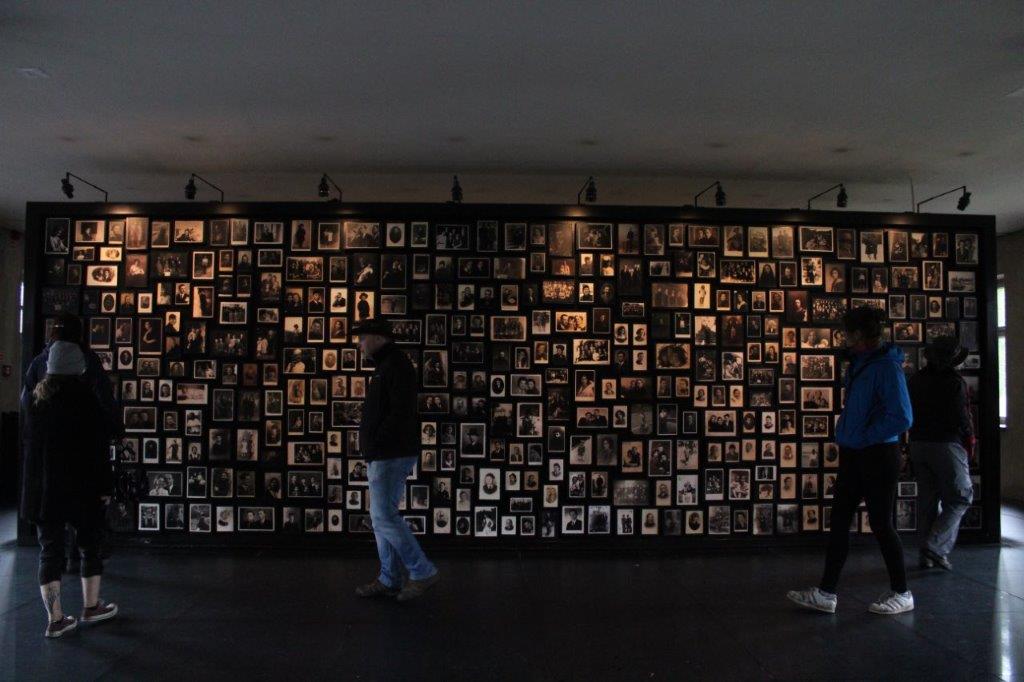
Photos found in suitcases of victims, on display in the Sauna building in Birkenau (photo: Witnessing Auschwitz, 2014)
The Museum released the title, The More I Know, the Less I Understand, in 2017. The publication features 20 essays by undergraduates who took part in the “Witnessing Auschwitz” seminar. That book is now No. 3 among the Museum’s English-language bestsellers published. Together with the Museum, Dr. Karwowska is currently working on a textbook, a collection of articles authored by Auschwitz scholars, for publication as an e-book with an integrated website built by UBC students. Just like her popular Global Seminar, Auschwitz: History of Place and People, an Academics’ Guide to the Camp Complex also heralds a completely different way of thinking – this time, about the textbook.
The aim: We’re not simply retelling the story of survivors, but retelling to preserve the stories of survivors and victims – those who did not survive. You have a better chance of winning the lottery than you had surviving Auschwitz. So what would be your thinking if you listened only to those who won?
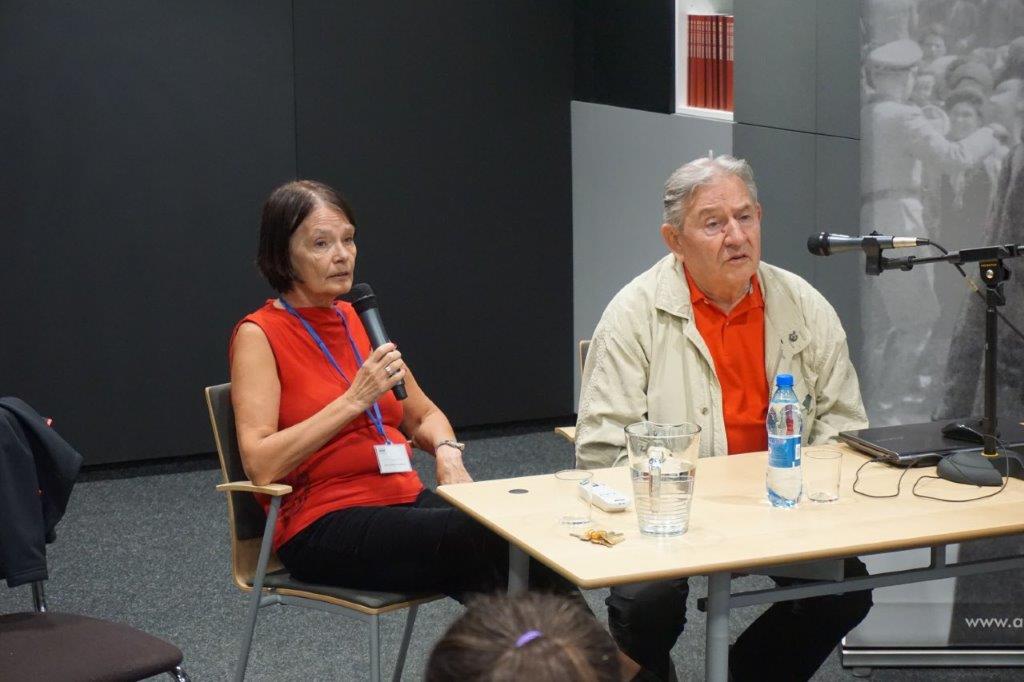
Dr. Bozena Karwowska (left) with Bogdan Bartnikowski, survivor of Auschwitz, meeting with UBC students (photo: Witnessing Auschwitz, 2018)
The challenge at hand: This is the end of meeting with survivors. We already knew this, but the end came much faster than we thought because of Covid. Auschwitz was liberated 76 years ago and survivors, teens back then, are in their 80s now. The model [of studying the Holocaust] was based on survivors visiting. That came to a very abrupt end.
An epiphany: This is a subject you can’t study in half-interest. You either get really drowned in it and feel responsibility – or not.
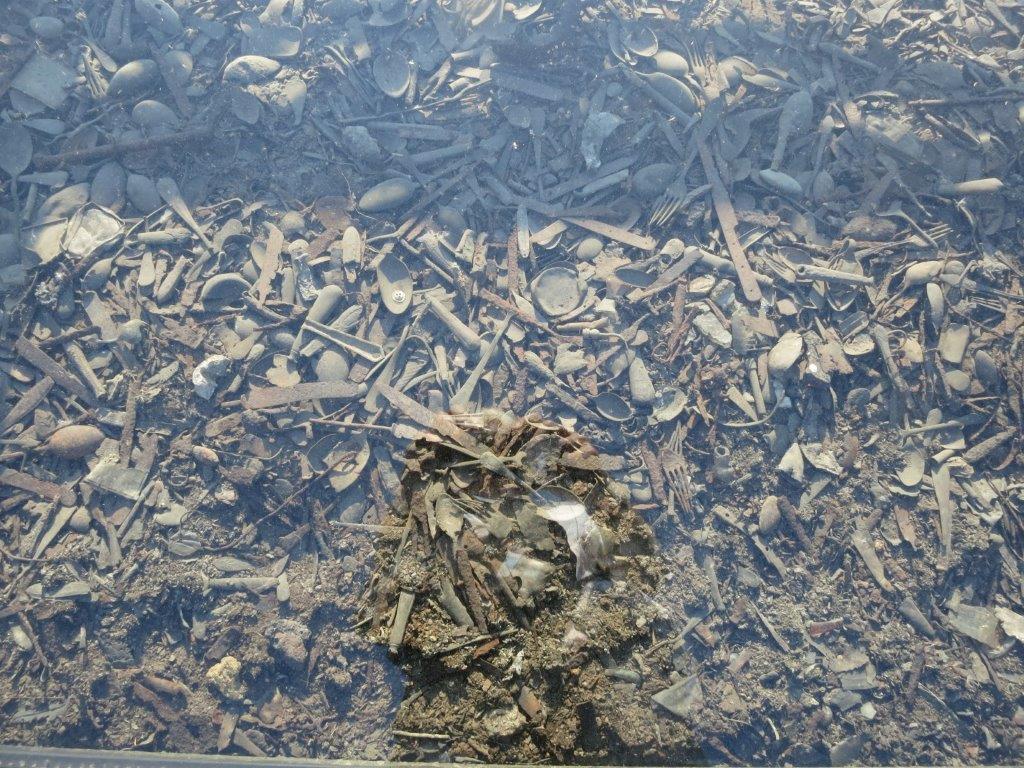
Remnants of looted posessions warehoused in Birkenau (photo: Witnessing Auschwitz, 2019)
Biggest misconception: That in-person learning is always better. At our seminar, all the interpersonal relations for students sometimes takes a heavy toll on them, and it’s not just the heaviness of the subject. We’re in small hotel rooms in the middle of nowhere, there’s no social life and it’s a very confined space. I always tell students, even if we were in Disneyland, you would still have personal relations issues. Studying Auschwitz requires a space for silence — and that is easier to find when you are at home.
What you learned switching to virtual: This year taught us we can have rewarding conversations with partners even for students unable to travel; that we can provide equal access. We are now using these seminars as an exercise to learn how to use technology more effectively and in a new way.
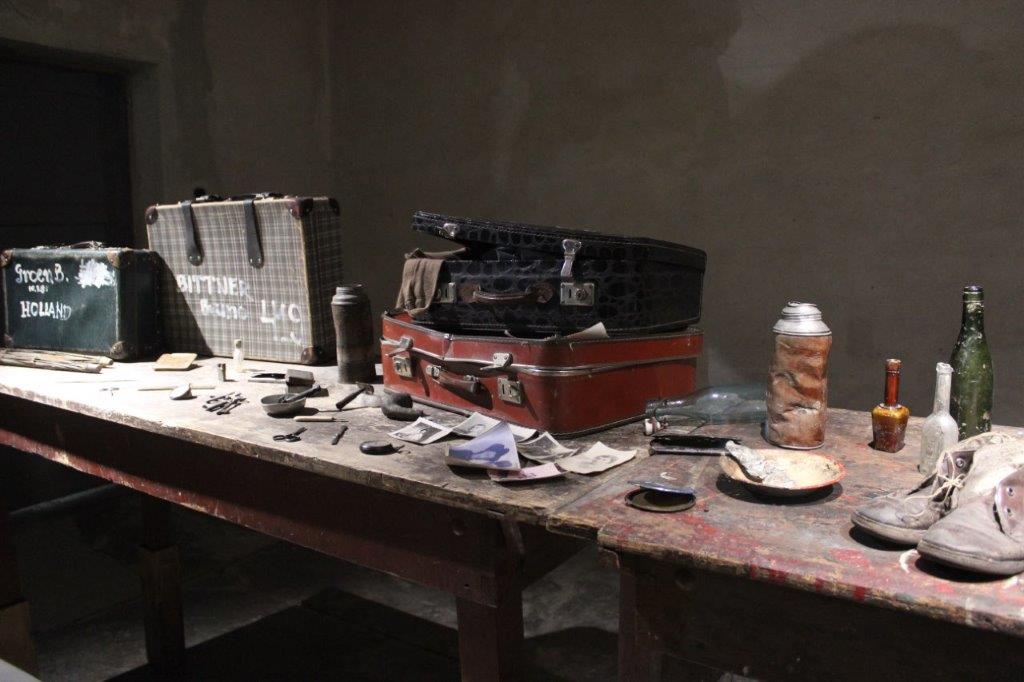
Suitcases, a display in the Sauna building in Birkenau (photo: Witnessing Auschwitz, 2019)
Difficulties of running a Global Seminar: That not all scholars in other countries are as familiar with new media as we are here in Canada. Working with a huge institution of global importance, and within the rules of the European Union, but in a very small Polish city: we weren’t in Warsaw or Vancouver. With thunderstorms, there was the issue of electricity. The place Auschwitz is nowhere, because the Nazis didn’t want anybody to find it.
Moving moment: We do that same walk as the victims. We read the archives and go on foot from the original ramp to Birkenau and the first gas chambers 1 km behind. It takes more than two hours and was a one-way walk for the Jewish victims.
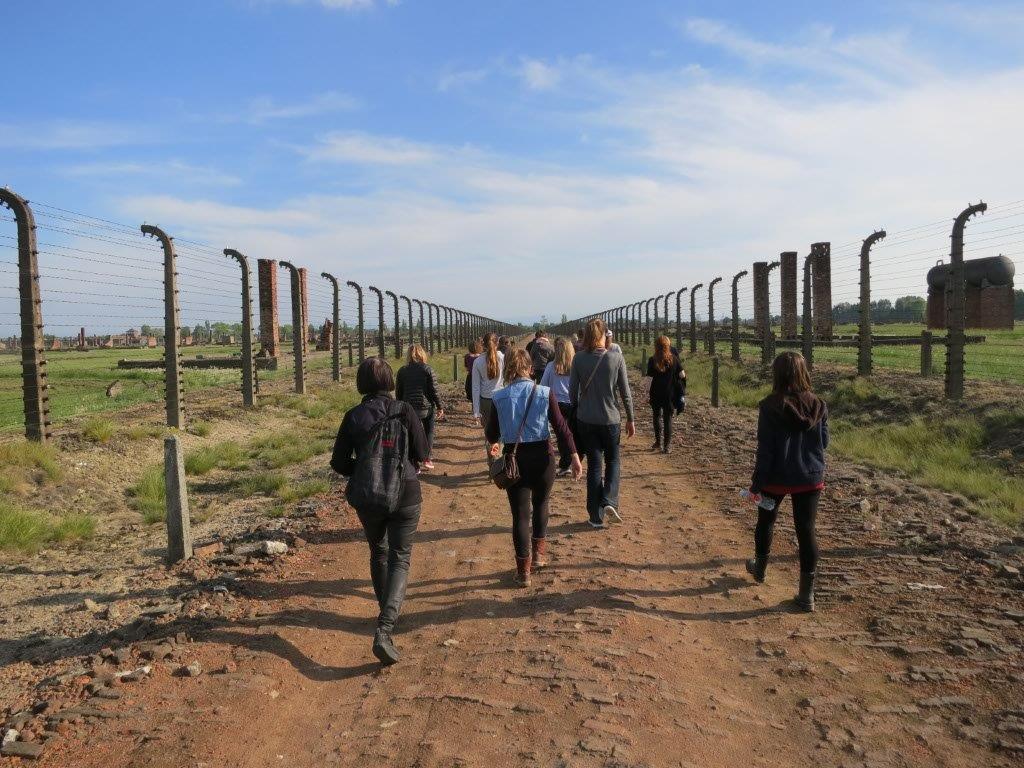
Students tour Birkenau (photo: Witnessing Auschwitz, 2015)
Finding balance in polarized times: We have to recognize the importance of free speech. But especially now, we also have to distinguish between current dissonance and historical facts.
What the world needs: Sometimes we need to reframe how we look at things. For example, we’re now looking at how we talk about women at Auschwitz. There is no confusion about how to talk about victims, but how to talk about their female guards? We’re focusing on the injustice of the overseers and women working for the SS. How do we talk about that? People omit the historical fact that these women were responsible or compliant in the selection of female prisoners. We have to stop looking through the lens of them as victims of patriarchal society only.
On staying hopeful: It’s the feeling of purpose. You need people around you who recognize what you do.
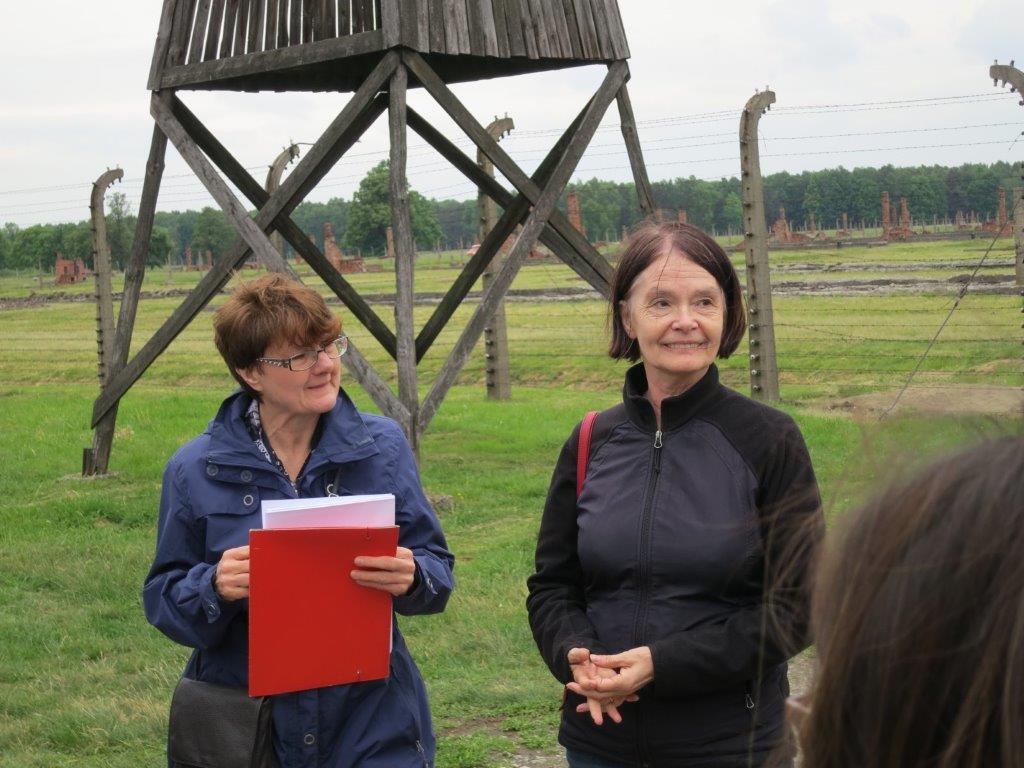
Dr. Bozena Karwowska (right) with Auschwitz Museum Head of Educational Programs Alicja Bialecka at Witnessing Auschwitz in 2015 (photo: Witnessing Auschwitz)
Find out more about the UBC Global Seminar “Witnessing Auschwitz.”
Download the e-book, The More I know, the Less I understand.
Register for the 2021 “Witnessing Auschwitz” conference Oct. 4 to 5. Stay tuned for details.
